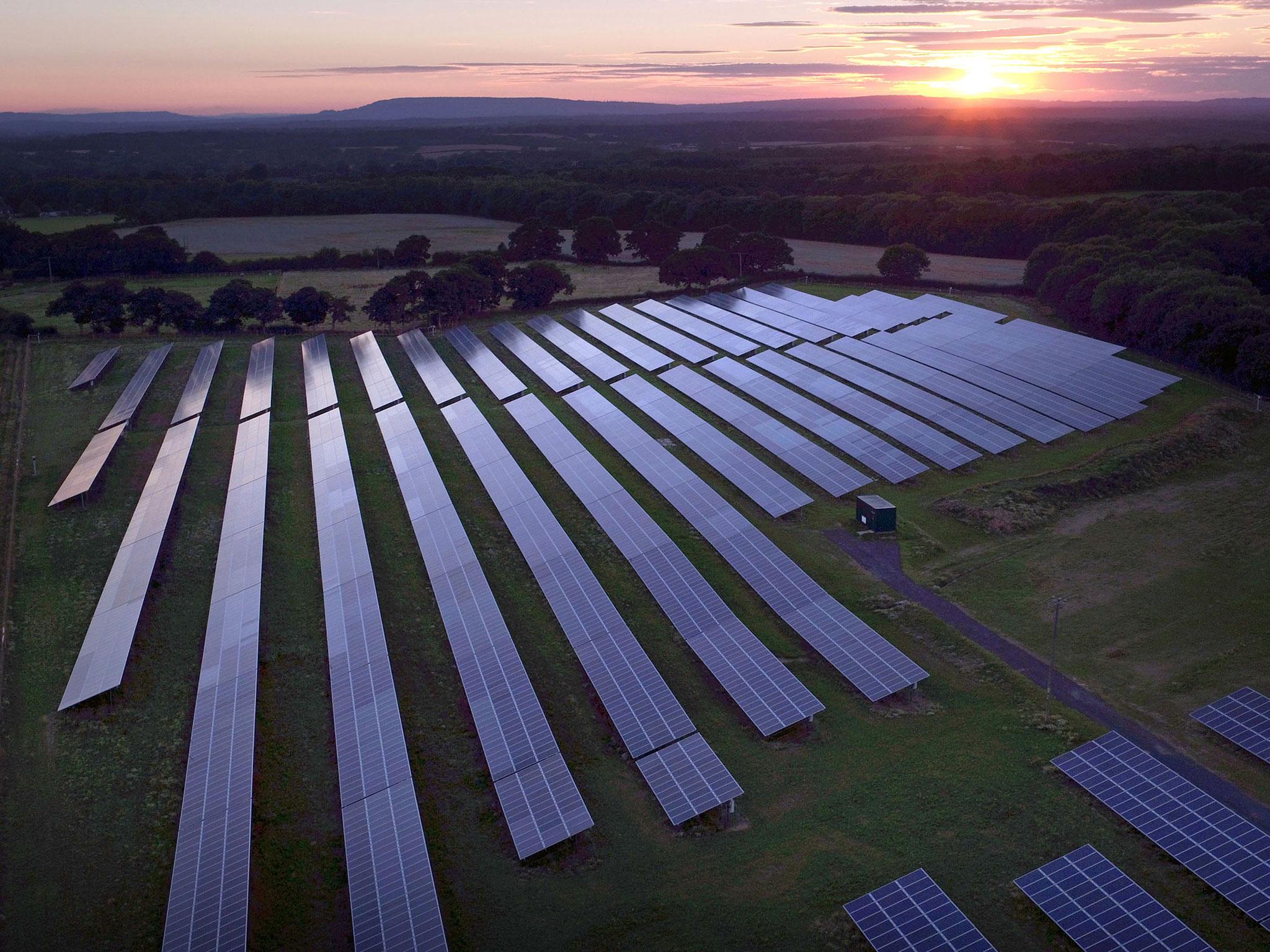
For the first time in history, information has been transmitted through a national electricity grid, opening massive opportunities for smart grids and smart cities.

The success of London in 2050 will be measured by its environment. Will Londoners experience the city as spacious, efficient, healthy, and resilient? Or will they experience it as overcrowded, dysfunctional, stressful and insecure?

Solar panels generated more electricity than coal in the past six months in a historic year for getting energy from the sun in the UK, according to a new analysis.

The farm, off the coast of Grimsby, will span 480km2 and provide power to 1.8M homes.

Garden grass could become a source of cheap and clean renewable energy, scientists have claimed. A team of UK researchers have shown that significant amounts of hydrogen can be unlocked from fescue grass with the help of sunlight and a cheap catalyst.

Three-quarters of UK construction companies now operate a low carbon or carbon reduction strategy, a new survey has shown.

New plans for driverless cars on Britain's roads are to be announced in the Queen's speech this week, as are proposals for creating an ambitious UK-based space tourism industry by 2018 along with drone-friendly innovations.

Cambridge to research future computing tech that could "ignite" a technology field A Cambridge-led project aiming to develop a new architecture for future computing based on superconducting spintronics - technology designed to increase the energy-efficiency of high-performance computers and data storage - has been announced. A project which aims to establish the UK as an international leader in the development of “superconducting spintronics” – technology that could significantly increase the energy-efficiency of data centres and high-performance computing – has been announced.

ULTRAFAST broadband provider Hyperoptic has launched in Brighton promising speeds 135 times faster than traditional ADSL services.

As you next fly into Heathrow, look out the window and you might see the world's largest floating solar farm, sitting atop the massive Queen Elizabeth II reservoir in Walton-on-Thames.

The Hornsea project is expected to generate 1.2GW of power once it comes online -- the first wind farm in the world to exceed 1GW in capacity.

Onshore wind energy could become cheaper than new gas generation by 2020 if the policy and regulatory conditions are right.

Harvard University has been awarded $28 million (£19m) to investigate why brains are so much better at learning and retaining information than artificial intelligence. The award, from the Intelligence Advanced Projects Activity (IARPA), could help make AI systems faster, smarter and more like human brains.

RenewableUK has highlighted new official statistics from National Grid which show that 2015 was a record year for wind energy generation, with onshore and offshore wind farms supplying their largest ever amounts of clean electricity to Britain’s homes, factories and offices.